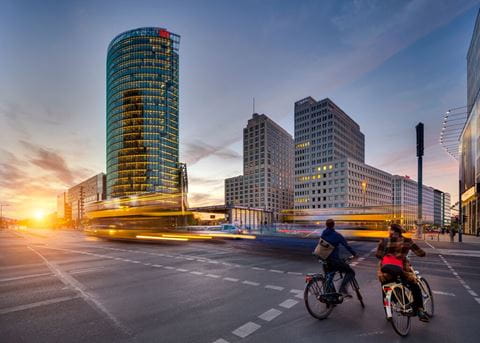
Lease vs buy
Is it better to lease or buy a car?
While we can’t answer this question for you, as it will depend on your plans and situation, we can explain the key differences between leasing and buying to help you make an informed choice.
- Initial costs
Leasing You will typically need to make three monthly payments in advance.
Buying You will need to pay the full cost upfront or take out a loan.
- Financial predictability
Leasing You’ll have fixed monthly payments, with the option to include maintenance and services, so you can budget effectively without unexpected expenses.
Buying You could have unpredictable maintenance and repair costs, which you need to factor in to your budget.
- Ownership
Leasing You never ‘own’ the vehicle. You simply use it for the length of the contract and at the end you can choose what happens next.
Buying You own the vehicle, so you know it’s yours for as long as you want.
- Flexibility
Leasing You can choose how long the lease lasts and how many miles you’ll drive and this then affects the price you pay.
Buying You can sell or trade in your car at any time, but you may face depreciation costs. If you choose to sell your car, this is not as predictable as ending a lease.
- Credit checks
Leasing Any leasing company, including Ayvens, will want to make sure you can manage the monthly repayments, so it’s likely there will be a thorough credit history check.
Buying If you can buy a vehicle outright, you won’t have to go through a credit check. If you choose to buy it with a loan, it’s likely there will be a credit check.
- Wear and tear
Leasing You need to return a lease vehicle in an acceptable condition based on its age and mileage. If it has damage that’s outside the fair wear and tear guidelines, you will be charged.
Buying It will be your vehicle, so you can keep it in whatever condition you want (as long as it can pass an MOT). However, if the vehicle is damaged, this may reduce the resale value.
- The ability to upgrade
Leasing You can normally upgrade to newer models quite regularly, so you can continue to benefit from the latest automotive technology.
Buying Upgrading to a newer model typically involves selling your current vehicle.
- Fleet management
Leasing All aspects of the vehicle can be managed for you, from roadside assistance and accident management to maintenance and taxing your vehicle.
Buying You may need to coordinate various services with different providers and ensure you stay in control of fleet administration.



